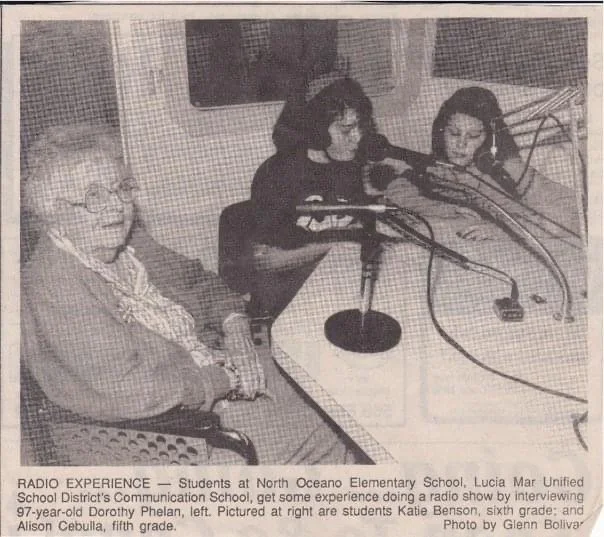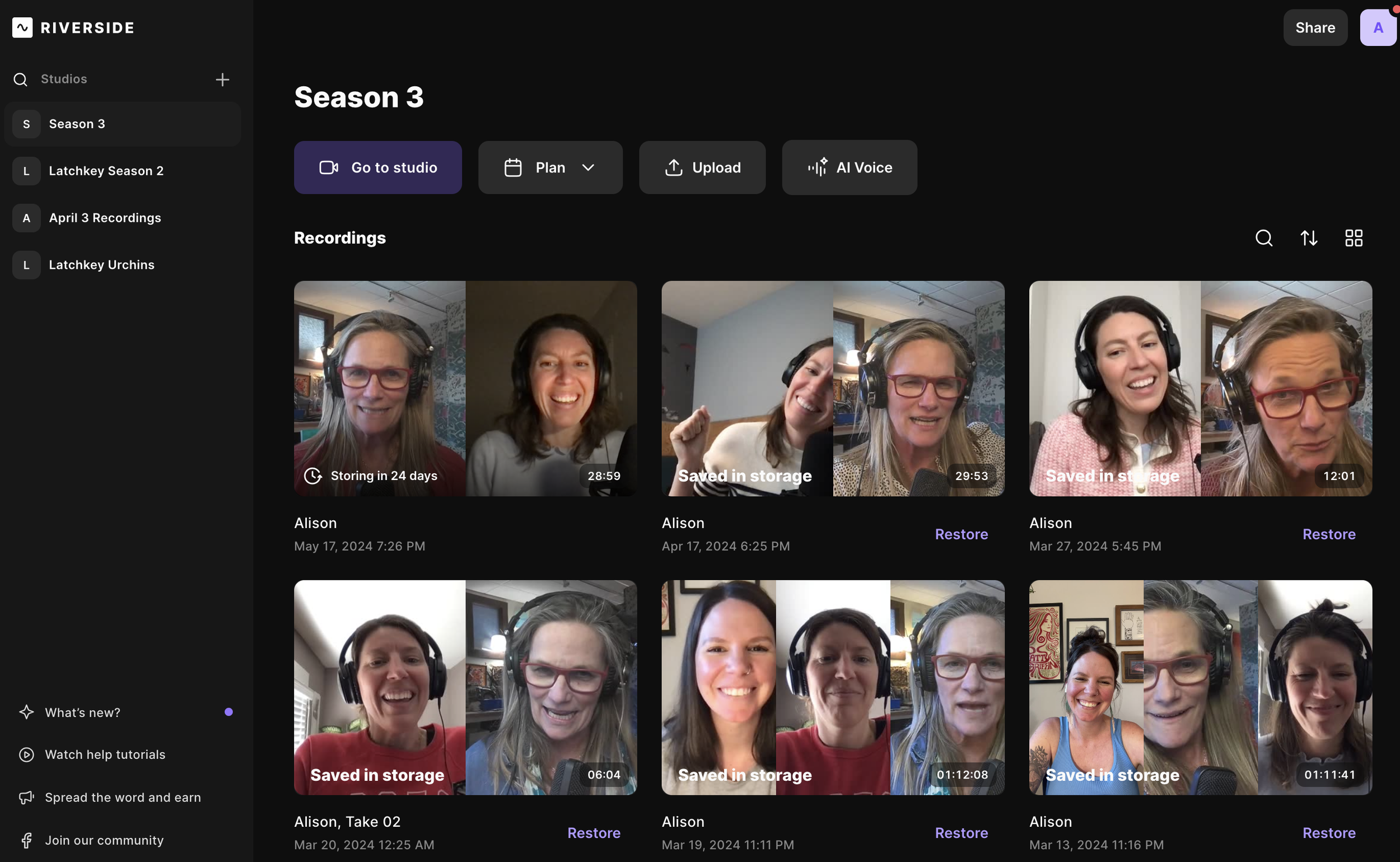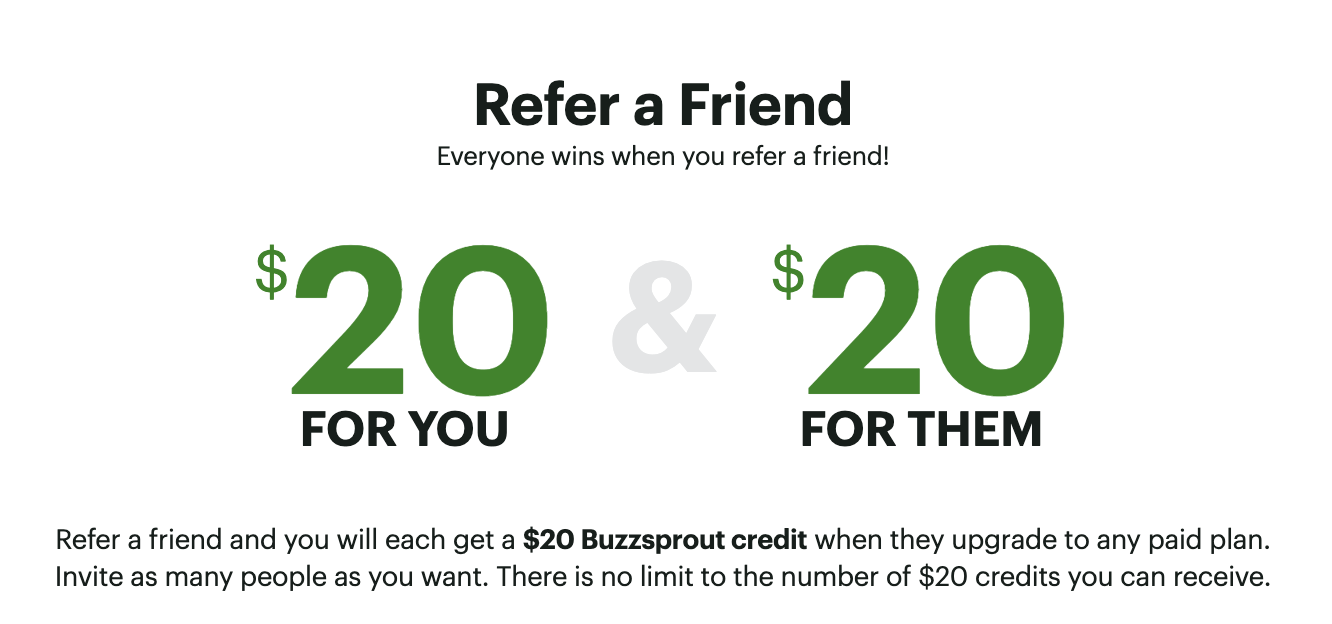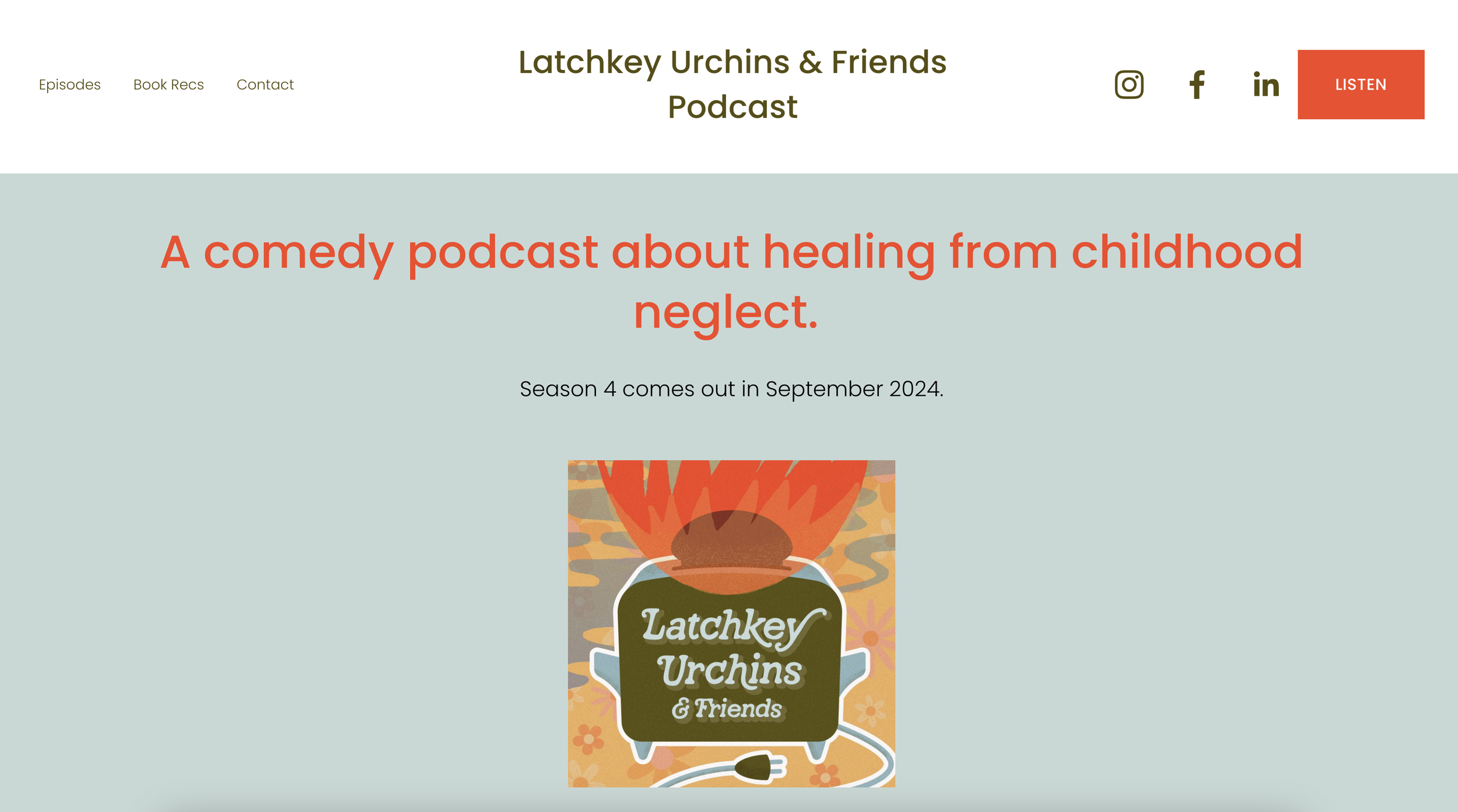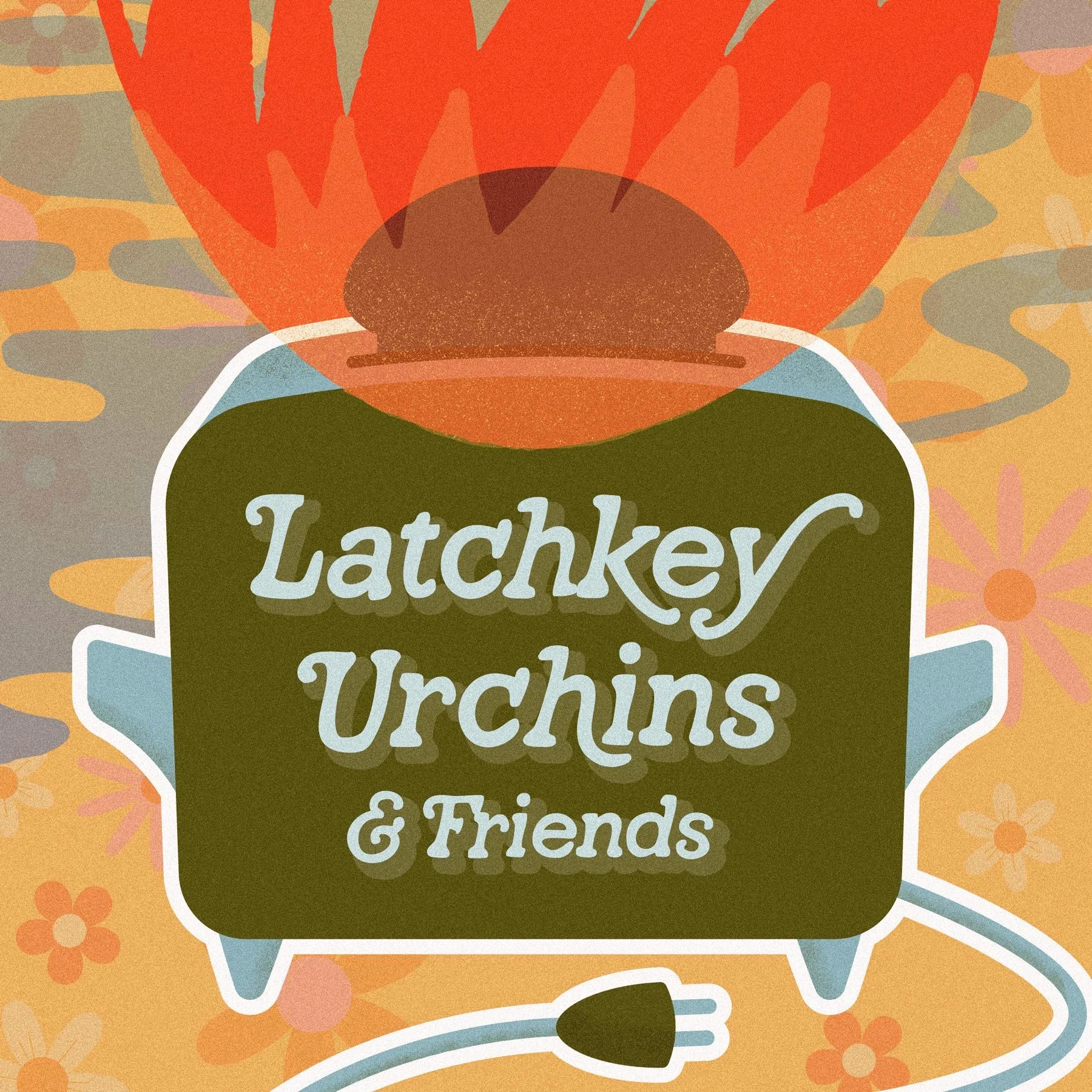Alison’s Guide to Podcasting
I have been podcasting for 3+ years. Here are my tips for getting started, building an audience, booking guests, recording, editing, mastering, and sustaining a successful podcast.
Live Radio - My Start
The first radioshow I hosted was KidTalk Radio in 5th and 6th grade:
I then went on to be a guest on my friend Dave Congalton’s live radio show many times from 2011 to the present, writing about that in the Public Health Exchange: Public Health Advocacy on Live Radio.
Podcasting
On a drive across the country from California to Massachusetts to start grad school in August 2018, my best girlfriend Laura and I recorded and published a podcast just to try it! We used some really basic, easy software and a tiny mic that hooked up to an iPhone. We recorded it while driving. We shared stories about expectations we had for life when we were teenagers and then how that played out in adulthood. It was fun practice!
In grad school at Boston University School of Public Health, I worked on a special advanced media project with an advisor to record and publish 3 episodes of a “Student Mental Health Podcast.” I learned a lot from this experience! Podcasting was a steep learning curve. The recordings were not the best quality and it took me forever to find out which software to use and how to the right audio outputs.
In 2018, I took this online course
This taught me all the myriad steps to get started:
equipment
hosting
recording
booking guests
promoting
probably more, I can’t remember
I’m not sure if it’s still as relevant now as it was then but I recommend it if it’s been kept up to date over the years.
Next, it was time to go pro—a real effort! The most important thing for me was finding a serious podcasting partner. Without my podcast co-host, Anne Sherry, I wouldn’t have kept with this project. We keep each other accountable.
We started talking about our podcast idea in the Spring of 2021, starting recording interviews at that time, then launching in September 2021. It’s called Latchkey Urchins & Friends Podcast and we are “healing trauma with humor.” The first year we published episodes every week! The second and third seasons we switched to every other week.
One other big thing that helped us get off the ground was that my boyfriend at the time is a professional mucisian—so he gave us free recording consulting and connected us with his bandmate, Josh Collins, to master the episodes.
Podcasting Tips
Equipment
We started with $100 microphones that plugged into our laptops directly. Incase we didn’t end up loving podcasting, we wanted to start with a small investment. These mic’s are even cheaper now! $48
Later we upgraded to condenser microphones that have a richer sound. $299. This is Audio Technica AT4040.
This mic doesn’t connect directly to a laptop—it requires a mixer. The mix plugs into the mixer and the mixer plugs into your laptop. Headphones plug into the mixer. Software is required.
Headphones: I already had a pair of Bose Headphones ($349) so I use those. These ones from AudioTechnica also work ($49).
Recording Software
Zoom
Riverside.fm
If you use Zoom, make sure you have the following setting:
Record a separate audio file of each participant
We switched to Riverside.fm because the user interface is better for podcasts—it’s main use case. The recordings are better quality because it records to each participant’s browser then uploads to the cloud. This means if there are connectivity issues, you don’t hear it in the recording. Recording locally to the browser means that connectivity doesn’t affect the quality. This is so important for a high quality podcast!
I also like the layout for storing and accessing recordings.
Hosting:
We host on Buzzsprout and are happy. It’s affordable and easy to use.
Use our referral code and get $20! Click here: https://www.buzzsprout.com/?referrer_id=1836886
Buzzsprout puts our podcast on all the podcast platforms. So you upload it to Buzzsprout, which automatically puts it on Apple, Spotify, etc.
Topics and Guests:
We brainstorm topics and reach out to people who have platforms about those topics. Maybe they’ve written an article, or created content on YouTube, Instagram or TikTok—or they’ve written a book.
We tend to pull a lot of authors from North Atlantic Books and we work with the marketing team there to connect us with the authors we want to interview. Examples include Jamie Marich and Darcia Narvaez.
We stay current on trendy topics to make sure we’re framing the episodes well. For example, Parentification is a topic that is trendy, that we care about (is relevant to our theme), and that has been very popular for us. Our Parentification episodes are here.
Recording Process/Logistics:
We send an email to our guests before meeting with the recording link, the process, and the questions.
We chat with our guest for about 15 minutes before recording to get comfortable.
Interviews typically last 60-90 minutes.
We often interview in blocks—like 2-3 interviews on a Sunday, then record the intros the week the episode is set to air. We had longer intro’s in Seasons 1 and 2 and in Season 3 decided to limit intros to around 5 minutes.
We let guests know that we can edit out anything they say if they want—it’s only been request once out of 70+ episodes. Helps them feel safe.
We keep the flow going. We don’t stop/start. Once we’re recording we typically stay recording the whole way through—unless someone drops or there’s a big technical issue.
In Season 1, we released 1 episode per week. We lowered that to 1 episode every other week for Seasons 2 and 3.
We launch our seasons in September of each year and wrap them up in May or June, taking the summers off.
Format & Editing:
I edit in Garageband.
I put all the tracks in and listen all the way through, clipping things out as I go.
It typically takes twice as much time to edit as the length of the recording. So a 1 hour episode takes 2 hours to edit and a 1.5 hour episode takes 3 hours to edit.
We were graciously given the song “One Cloud is Lonely” by Próxima Parada for use for our podcast, which besides being an amazing song, just fits our theme and tone so well! We lucked out!
After I finish the episode, I send over “stems” to our Audio Engineer, Josh Collins (message me for his contact info if you’re looking for someone). He checks the sound quality and audio levels, insuring that all the tracks match each other in audio levels and that all of our episodes are the same volume. He then sends the mastered episode back to me to upload or sometimes he uploads it directly to Buzzsprout.
Marketing:
This is the part I don’t love!
I built a website on Wordpress initially but it kept getting attacked by malware so we switched to Squarespace, which is more expensive, but safer and easier to use. Each episode has a page with show notes and listen links for Spotify and Apple Podcast.
Social media: Instagram, Facebook, and LinkedIn. We post to Instagram and it automatically posts to Facebook. We post each episode to our personal FB pages too and repost our IG posts to our personal IG stories. LinkedIn I used to be more diligent about but that one tapered off.
Since we’re a comedy podcast, we can post a lot of funny memes so that part is pretty easy. We also post video clips (made within Riverside.fm), audio clips, and quotes from episodes. When posting video and audio, it’s important to have subtitles on.
We have done some written content marketing through Anne’s blogs on Elephant Journal. Two of them were hits and we saw an uptick in listeners. Doing this is a lot of work though and we don’t always have the time.
YouTube. It’s possible to host full episodes using “YouTube Podcast” but we haven’t utilized this yet. YouTube is the 2nd most popular search engine after Google. We post video clips but not full video episodes—this is because it would take so much time to do this! If you have the budget and could hire someone, seems worth it. We have done bonus “react” videos on current events. Check it all out here.
Graphic Design—we hired someone to design our logo and it wasn’t cheap! We hired pro Claire Dierksen. Such a great investment because it helps us look more professional.
Canva—we pay for Pro and make our episode images here. Ideally, in the future with a bigger budget, we’d have Claire make these episode images as well.
Goals:
Our main goal is to have fun! We were having fun talking with each other over Zoom in the early days of the pandemic and realized a podcast idea was in there. It’s mainly an excuse to talk and text every day with each other. Our friendship has pushed me to grow in so many ways and Anne feels the same! We reflect on this journey in this episode.
We get to explore the topic of healing and trauma with all the most amazing experts which feels like such an honor and privilege.
We do not monetize this podcast but we have a solid base if we want to ramp that up in the future.
It does establish us as experts in our field and we’re considering writing a book about healing trauma. We’re also considering creating an online course in the future to heal trauma.
We try to take the podcast seriously but not stress ourselves out.

